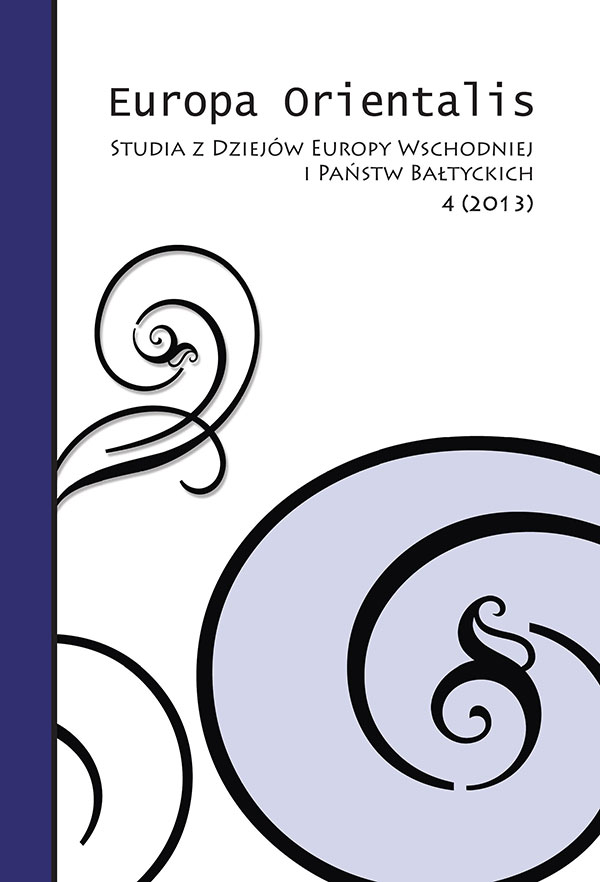Semantyka polityczna w terminologii naukowej (na przykładzie wojny w Gruzji 2008 roku)
DOI:
https://doi.org/10.12775/EO.2013.011Abstrakt
Nocą 7 sierpnia 2008 roku wojska gruzińskie rozpoczęły operację „przywracania ładu konstytucyjnego” na obszarze kontrolowanym przez separatystów osetyjskich. 12 sierpnia 2008 roku wojska rosyjskie zakończyły działania militarne w ramach operacji „przymuszania do pokoju” na terytorium Gruzji. Tych pięć gorących sierpniowych dni doczekało się w okresie ostatnich pięciu lat wielu rozmaitych określeń o przeróżnych odcieniach znaczeniowych. Spróbujmy przeanalizować je pod względem formalnym i merytorycznym oraz ocenić, jakie znaczenie historyczno-polityczne może mieć konsekwentne używanie pozornie poprawnych, lecz nie do końca precyzyjnych określeń.
Pobrania
Opublikowane
2014-06-05
Jak cytować
1.
JASTRZĘBSKI, Mirosław. Semantyka polityczna w terminologii naukowej (na przykładzie wojny w Gruzji 2008 roku). Europa Orientalis. Studia z Dziejów Europy Wschodniej i Państw Bałtyckich [online]. 5 czerwiec 2014, nr 4, s. 149–158. [udostępniono 20.1.2026]. DOI 10.12775/EO.2013.011.
Numer
Dział
DYSKUSJA I POLEMIKA
Statystyki
Liczba wyświetleń i pobrań: 525
Liczba cytowań: 0



